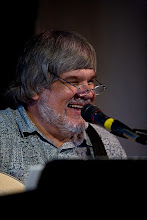April 2, 1961
A meditation on renewal and change.
Key to understanding the world that the Beatles are re-entering is the insight that World War II had only been over for 16 years. The trouble and privation caused by that earth shaking war is still very much on the minds of the generation that went before the Beatles on both sides of the North Sea. The "German miracle" refers to the transformation of defeated Germany into a world economic powerhouse and was very much in process at this time. A society in a state of chaos often brings with it social experimentation not possible during more settled times. The Beatles don't come into an existing situation in Hamburg. They are among the actors in the drama that are remaking post-war Germany. The experience for the Beatles (and lots of other musical ambassadors) is, indeed, one of liberation from the work-a-day existence they left behind in England.
During the post-war occupation, American GIs had brought into Germany influences that would have been strictly verboten while the countries were in conflict. Jazz music was one of those influences and ever-present impresarios sprang up to satisfy the public's desire for it all over Germany, and especially in the entertainment districts like the Reeperbahn. When American jazz music later gave way to rock and roll, the thirst for American music became even more unquenchable.
At the same time a culture of the "teenager" was changing life all over Europe and America. Rising standards of living ensured that some of that spending power would come into the hands of young people and at that time of their lives, kids are strongly concerned with establishing their own culture in contrast to that of their elders, hence almost an obsession with new forms of music and dress. According to Gerry Marsden, the "cheeky" attitude of the English kids towards their German elders was: "Don't tell us anything. We won the war."
All these rivers of change flow inexorably into a place on the Reeperbahn called the "Top Ten Club". In 1960, a space that had been used to accommodate the German people's love for circus and spectacle had been converted into a rock and roll venue by an entertainment entrepreneur named Peter Eckhorn. Some of the musician themselves had wielded paint brushes and hammers to make it happen. The ponies and tigers were gone, but the spectacle was just beginning.
Saturday, April 2, 2011
Subscribe to:
Post Comments (Atom)






i found this post very interesting. I must agree with you, the war hadnt been over for long when the beatles started. and there's alwways that fact of whether Ringo was jewish or not.
ReplyDelete